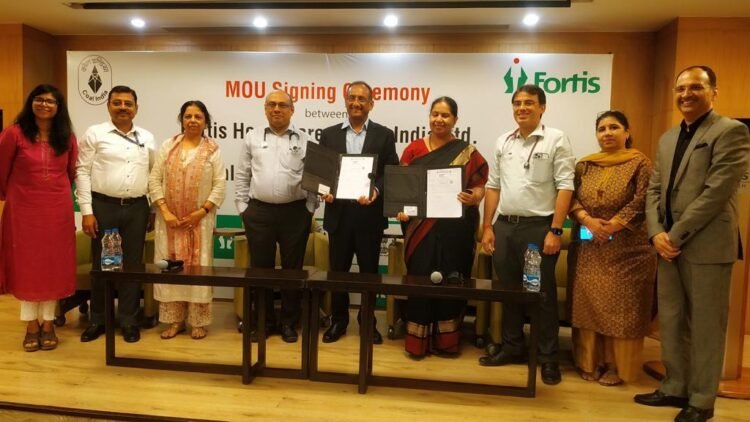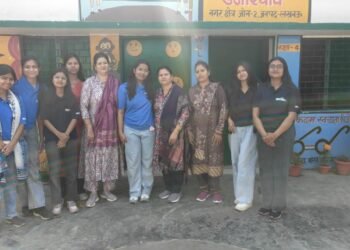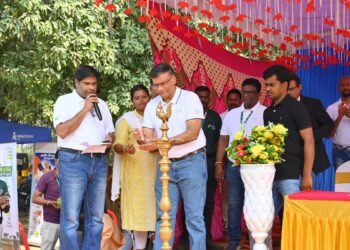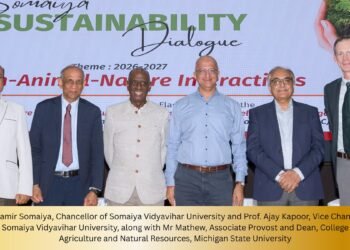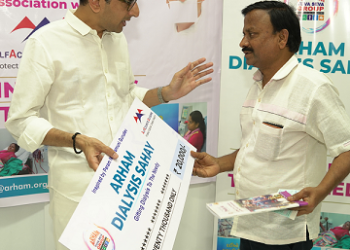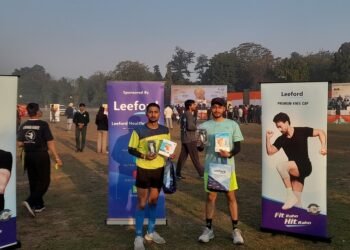Delhi: Continuing with the aim of saving and enriching lives, Fortis Healthcare has joined hands with Coal India Limited (CIL) to treat underprivileged children suffering from thalassemia, under CIL’s flagship CSR Initiative ‘Thalassemia Bal Sewa Yojana’. The Memorandum of Understanding (MoU) for this partnership was signed on July 28th at Fortis Memorial Research Institute, Gurugram, in the presence of Smt. Renu Chaturvedi, General Manager (CSR), Coal India, Smt. Shobha Tuli, Secretary, Thalassemics India, Shri. Anil Vinayak, Group COO, Fortis Healthcare, Dr Rahul Bhargava, Principal Director of Hematology and Bone Marrow Transplant, Fortis Gurugram and other senior dignitaries from Fortis. In 2017, Coal India had launched ‘Thalassemia Bal Sewa Yojana’ to support the treatment of underprivileged children affected by Thalassemia. Later in 2020 Aplastic Anemia was also added under the programme.
Financial Assistance at Fortis Hospital, Gurugram
As per the MoU, financial assistance of up to Rs. 10 lakhs will be provided by Coal India Limited to eligible patients for bone marrow transplants and the treatment can be done at Fortis Hospital, Gurugram. Fortis Memorial Research Institute, has one of the largest and most comprehensive BMT centres in the country with an experienced team of nearly 20 doctors, who have expertise in treatment of all kinds of blood disorders and also perform complicated Bone Marrow Transplants. The Bone Marrow Transplant Centre in Gurgaon has 26 bedded BMT ICUs and has successfully completed a total of 1500+ Bone Marrow Transplants including 250+ Haploidentical BMTs, 100+ Sickle Cell Anemia BMTs, 100+ Thalassemia BMTs and 75+ Multiple Sclerosis BMTs.
Combating Thalassemia: Fortis Healthcare’s Efforts
Anil Vinayak, Group COO, Fortis Healthcare said, “India is known as the Thalassemia capital of the world with a huge burden of an estimated 42 million thalassemia carriers and approximately 100,000 patients with a β thalassemia syndrome. Thus, it is crucial to address the burden of the disease and providing the right treatment is essential. Fortis Healthcare has been doing major work in treating thalassemia patients, even in rural areas and this collaboration with Coal India Limited will further benefit a large number of underprivileged thalassemia patients, thus help reduce burden of the ailment.”
Coal India’s CSR: Thalassemia & Aplastic Anaemia
Vinay Ranjan, Director (P&IR), Coal India Limited said, “Considering the challenges that patients with Thalassemia and Aplastic Anaemia face, Coal India Limited, under the auspices of the Ministry of Health & Family Welfare, Government of India has come up with a CSR initiative of supporting the treatment of children affected by the two ailments. We are happy to collaborate with Fortis Healthcare under this initiative as Fortis Memorial Research Institute, Gurugram has one of the largest BMT centres in the nation. With an experienced team of doctors, the hospital can treat every kind of blood disorder and perform complicated Bone Marrow Transplants. Coal India Limited is the first PSU to take up a CSR project in 2017, for curative treatment of Thalassemia. 356 successful transplants have been done till 30th April 2023. From 2021, Aplastic Anaemia patients are also covered under the scheme.”
Thalassemia and Aplastic Anaemia in India
Thalassemia is an inherited blood disorder that causes a body to have less hemoglobin than normal. It is a rare burdensome disease, requiring lifelong repeated blood transfusion, as well as other expensive medical interventions for survival. It is estimated that more than 10,000 Thalassemia children are born every year in India. India has the highest number of children with thalassemia major in the world, with an estimated 1 to 1.5 lakh individuals affected. It is estimated that in the absence of prevention, the thalassemia population of India would reach a total of 2,75,000 by 2026, according to the Thalassemia International Federation. Aplastic Anaemia is a condition that occurs when the body stops producing enough new blood cells. About 9,400 people are diagnosed with this disease every year. These diseases pose an emotional, psychological, and economic burden on the affected families, especially those from rural and poor backgrounds, besides placing a great burden on healthcare services. The permanent cure of these ailments lie in stem cell transplants also known as Bone Marrow transplants (BMT). Further, it is found that the treatment is more successful if BMT is done at an early age.

